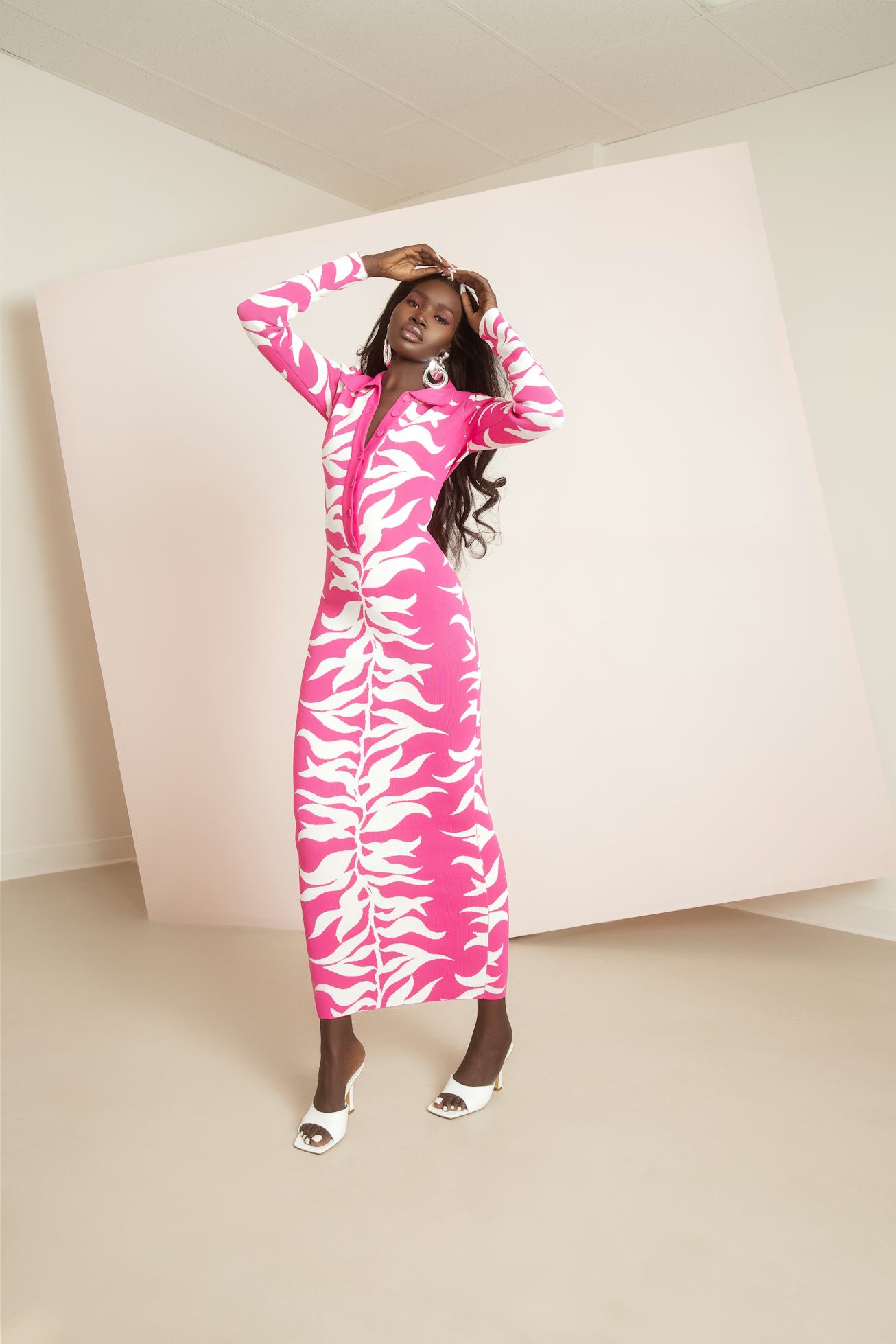
Fashion
Meet The 10 Winners Of The 2021 CFDA/Vogue Fashion Fund
Including LaQuan Smith, Batsheva, Hanifa, and more.
The CFDA and Vogue have announced its official list of recipients for its 2021 CFDA/Vogue Fashion Fund. The designers behind Batsheva, Eckhaus Latta, Hanifa, Kenneth Nicholson, House of Aama, LaQuan Smith, and more will receive grants and mentorships courtesy of the major fashion publication, as well as Instagram, Nordstrom, and Saks Fifth Ave.
“This year’s talented group of Fashion Fund finalists is facing an industry in the process of reinvention and transformation,” Tom Ford, Chairman of the CFDA, said in an official statement. “The program’s new format aims to help the designers better navigate and thrive in fashion’s future.”
Unlike previous years, all 10 designers were granted the resources that were usually reserved for the top three finalists. In light of the COVID-19 pandemic and its lasting impact on fashion, the CFDA and Vogue announced the changes to the fashion fund in February, hoping that it would offer a much-needed boost to the industry.
“After an incredibly challenging time for all of us in fashion, especially here in New York, we're thrilled that this year we are able to support all of our finalists,” said Anna Wintour, global editorial director of Vogue and chief content officer of Condé Nast, in an official statement. “It’s not only a vote of confidence in their talents, but in a brighter future for American fashion.”
Get to know the 10 winners of this year’s CFDA/Vogue Fashion Fund, below.
Batsheva
Coming fresh off a knitwear collab with Ella Emhoff, designer Batsheva Hay has made quite the pivot from a practicing lawyer to celebrated designer. In 2018, she came second place in the CFDA/Vogue Fashion Fund, receiving $150,000 toward her brand.
Eckhaus Latta
Founded in 2011 by designer duo Mike Eckhaus and Zoe Latta, Eckhaus Latta has already been a finalist for the LVMH Prize. Last year, the duo kickstarted pandemic fashion with a collaboration with UGG.
Hanifa
Few designers took to virtual runway shows quite like Hanifa’s Anifa Mvuemba, who seized the opportunity to debut invisible 3D models last summer.
“It's an evolution of me going from a young woman to a woman-woman now,” she told NYLON. “The brand has really grown, the quality has grown, the overall message and visuals. The best way I could describe it is it really started from being a baby to now a woman. There's been levels each year; something new each year. New growth, new challenges, new things, but all for the better.”
House of Aama
Mother-daughter duo Akua Shabaka and Rebecca Henry have looked to their familial history since the inception of House of Aama back in 2013, when Shabaka was still in high school and upcycling vintage with the help of Henry.
“I'm 53, she's 23. So we're in different generations. Sometimes our creative vision is a little bit different, as well, but it's actually a strength of ours and it adds to our business,” Henry told NYLON in February. “We can have more of a 360-degree view of things that we're looking at. It really adds to things.”
Kenneth Nicholson
Before Kenneth Nicholson launched his eponymous label in 2016, he spent four years in the U.S. Navy, which sparked a love affair for the structured and tailored silhouettes of military uniforms. Earlier this year, he paid homage to his past through a collaboration with Depop, which featured a gender-neutral capsule collection made from deadstock fabric.
Khiry
Designer Jameel Mohammed founded his fine jewelry brand in 2016 while studying political science at the University of Pennsylvania. Khiry’s accessories are inspired by the “beauty, art, heritage, and culture of the African Diaspora.”
LaQuan Smith
LaQuan Smith is already Kardashian-Jenner approved, with Kim Kardashian and Kylie Jenner frequently wearing his custom designs.
“It’s a looking-good, feeling-good collection with the understanding and the ownership of the fact that we are a Black-owned luxury brand,” he told Vogue of his most recent collection. “So I wanted things to be as unapologetic and unique as possible, diving deeper into my truth as a designer.”
Studio 189
The brand, founded by Rosario Dawson and Abrima Erwiah, has previously won the CFDA Lexus Fashion Initiative for Sustainability. Made in Africa, the label operates a store and manufacturing facility in Ghana, as well as employs local artisanal communities.
Theophilio
Theophilio’s Edvin Thompson made its fashion week debut just last year, after being named one of Teen Vogue's Next Generation Designers. Focusing on sustainable practices, Thompson explores different stories and eras with each collection, all while putting a spotlight on his Jamaican heritage.
“One thing for me is to put Jamaica on the map. Jamaica doesn’t just stop at reggae music and jerk chicken, rice, and peas,” he told The Cut. “The community, the vibrant music, colors — no matter if someone passed away or they have triumphed over something, there is always a celebration of life.”
Willy Chavarria
The Mexican-American menswear designer, who recently took on a men’s design role at Calvin Klein, has been transforming classic silhouettes inspired by his Chicano heritage and turning them into high fashion since launching his label in 2015.
“A tucked in white T-shirt with wide pressed khakis and a black belt as worn by Chicanos is the most beautiful silhouette to me,” Chavarria told Mission. “Taking work clothes and making them fashion in this way is at the heart of my brand.”